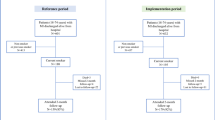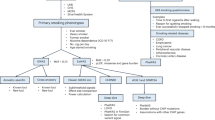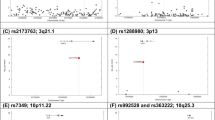Abstract
Varenicline is an effective and increasingly prescribed drug for smoking cessation, but has been associated with depressive symptoms and suicidal behavior. However, it remains unclear whether those changes in mood and behavior are directly related to varenicline use, or caused by smoking cessation itself or reflects depression and suicidality rates in smokers, independent of treatment. To investigate the influence of varenicline on mood and behavior independent of smoking and smoking cessation, we assessed the effects of varenicline on emotional processing (a biomarker of depressogenic effects), emotion-potentiated startle reactivity, impulsivity (linked with suicidal behavior), and cognitive performance in non-smoking subjects. We used a randomized, double-blind design, in which we administered varenicline or placebo to healthy subjects over 7 days (0.5 mg/day first 3 days, then 1 mg/day). Cognitive and emotional processing was assessed by a battery of computerized tasks and recording of emotion-potentiated startle response. A total of 41 subjects were randomized, with 38 subjects included in the analysis. The varenicline group did not differ from placebo in terms of negative biases in emotional processing or mood. However, compared with placebo, the varenicline group scored higher on working and declarative memory. In conclusion, short-term varenicline use did not influence negative biases in emotional processing or impulsivity in non-smoking subjects, thereby not supporting direct depressogenic or suicidal risk behavior-inducing effects. In contrast, varenicline may have cognitive-enhancing effects.
Similar content being viewed by others
Log in or create a free account to read this content
Gain free access to this article, as well as selected content from this journal and more on nature.com
or
References
Beck AT, Steer RA, Ball R, Ranieri W (1996). Comparison of Beck depression inventories -IA and -II in psychiatric outpatients. J Pers Assess 67: 588–597.
Cahill K, Stead LF, Lancaster T (2011). Nicotine receptor partial agonists for smoking cessation. Cochrane Database Syst Rev 16: CD006103.
Cocores JA, Gold MS (2008). Varenicline and adult ADHD. J Neuropsychiatry ClinNeurosci 20: 494–495.
Covey LS, Glassman AH, Stetner F (1990). Depression and depressive symptoms in smoking cessation. Compr Psychiatry 31: 350–354.
Crawford JR, Henry JD (2004). The positive and negative affect schedule (PANAS): construct validity, measurement properties and normative data in a large non-clinical sample. Br J Clin Psychol 43 (Pt3): 245–265.
Dougherty DM, Marsh DM, Mathias CW (2002). Immediate and delayed memory tasks: a computerized behavioral measure of memory, attention, and impulsivity. Behav Res Methods Instrum Comput 34: 391–398.
Ekman P, Friesen WV (1976) Pictures of Facial Affect. Consulting Psychologists Press: Palo Alto, CA.
Eysenck HJ, Eysenck SBG (1975) Manual of the Eysenck personality questionnaire. Hodderand Stoughton, London.
Faessel HM, Smith BJ, Gibbs MA, Gobey JS, Clark DJ, Burstein AH (2006). Single-dose pharmacokinetics of varenicline, a selective nicotinic receptor partial agonist, in healthy smokers and nonsmokers. J Clin Pharmacol 46: 991–998.
Faessel HM, Obach RS, Rollema H, Ravva P, Williams KE, Burstein AH (2010). A review of the clinical pharmacokinetics and pharmacodynamics of varenicline for smoking cessation. Clin Pharmacokinet 49: 799–816.
First MB, Spitzer RL, Gibbon M, Williams JB (1997) User's guide for the Structured Clinical Interview for DSM-IV Axis I Disorders SCID-I: Clinician Version. American’s Psychiatric Publishing: Arlington.
Garza D, Murphy M, Tseng LJ, Riordan HJ, Chatterjee A (2011). A double-blind randomized placebo-controlled pilot study of neuropsychiatric adverse events in abstinent smokers treated with varenicline or placebo. Biol Psychiatry 69: 1075–1082.
Ginani G, Tufik S, Bueno O, Pradella-Hallinan M, Rusted J, Pompéia S (2011). Acute effects of donepezil in healthy young adults underline the fractionation of executive functioning. J Psychopharmacol 25: 1508–1516.
Grier JB (1971). Nonparametric indexes for sensitivity and bias: computing formulas. Psychol Bull 75: 424–429.
Harmer CJ, Cowen PJ, Goodwin GM (2011). Efficacy markers in depression. J Psychopharmacol 25: 1148–1158.
Harrison-Woolrych M, Ashton J (2011). Psychiatric adverse events associated with varenicline: an intensive postmarketing prospective cohort study in New Zealand. Drug Saf 34: 763–772.
Hayward G, Goodwin GM, Cowen PJ, Harmer CJ (2005). Low-dose tryptophan depletion in recovered depressed patients induces changes in cognitive processing without depressive symptoms. Biol Psychiatry 57: 517–524.
Hong LE, Thaker GK, McMahon RP, Summerfelt A, Rachbeisel J, Fuller RL et al (2011). Effects of moderate-dose treatment with varenicline on neurobiological and cognitive biomarkers in smokers and nonsmokers with schizophrenia or schizoaffective disorder. Arch Gen Psychiatry 68: 1195–1206.
Horder J, Browning M, Di Simplicio M, Cowen PJ, Harmer CJ (2012). Effects of 7 days treatment with the cannabinoid type 1 receptor antagonist, rimonabant, on emotional processing. J Psychopharmacol 26: 125–132.
Larson CL, Ruffalo D, Nietert JY, Davidson RJ (2000). Temporal stability of the emotion-modulated startle response. Psychophysiology 37: 92–101.
Laviolette SR, van der Kooy D (2004). The neurobiology of nicotine addiction: bridging the gap from molecules to behaviour. Nat Rev Neurosci 5: 55–65.
Lawrence D, Mitrou F, Zubrick SR (2009). Smoking and mental illness: results from population surveys in Australia and the United States. BMC Public Health 9: 285.
Loughead J, Ray R, Wileyto EP, Ruparel K, Sanborn P, Siegel S et al (2010). Effects of the alpha4beta2 partial agonist varenicline on brain activity and working memory in abstinent smokers. Biol Psychiatry 67: 715–721.
Mannie ZN, Harmer CJ, Cowen PJ, Norbury R (2010). A functional magnetic resonance imaging study of verbal working memory in young people at increased familial risk of depression. Biol Psychiatry 67: 471–477.
Medicines and Healthcare Products Regulatory Agency (2008). Varenicline: safety update. Drug Safety Update 1: 3–4.
Mineur YS, Picciotto MR (2010). Nicotine receptors and depression: revisiting and revising the cholinergic hypothesis. Trends Pharmacol Sci 31: 580–586.
Moore TJ, Furberg CD, Glenmullen J, Maltsberger JT, Singh S (2011). Suicidal behavior and depression in smoking cessation treatments. PLoS One 6: e27016.
National Center for Chronic Disease Prevention and Health Promotion (2011). Tobacco use, targeting the nation’s leading killer. http://www.cdc.gov/chronicdisease/resources/publications/aag/pdf/2011/Tobacco_AAG_2011_508.pdf.
Ohmura Y, Tsutsui-Kimura I, Yoshioka M (2012). Impulsive behavior and nicotinic acetylcholine receptors. J Pharmacol Sci 118: 413–422.
O'Malley SS (2011). Varenicline and the evaluation of neuropsychiatric adverse events in smokers. Biol Psychiatry 69: 1017–1018.
Oncken C, Gonzales D, Nides M, Rennard S, Watsky E, Billing CB et al (2006). Efficacy and safety of the novel selective nicotinic acetylcholine receptor partial agonist, varenicline, for smoking cessation. Arch Intern Med 166: 1571–1577.
Patterson F, Jepson C, Strasser AA, Loughead J, Perkins KA, Gur RC et al (2009). Varenicline improves mood and cognition during smoking abstinence. Biol Psychiatry 65: 144–149.
Patterson F, Jepson C, Loughead J (2010). Working memory deficits predict short-term smoking resumption following brief abstinence. Drug Alcohol Depend 106: 61–64.
Philip NS, Carpenter LL, Tyrka AR, Whiteley LB, Price LH (2009). Varenicline augmentation in depressed smokers: an 8-week, open-label study. J Clin Psychiatry 70: 1026–1031.
Philip NS, Carpenter LL, Tyrka AR, Price LH (2010). Nicotinic acetylcholine receptors and depression: a review of the preclinical and clinical literature. Psychopharmacology (Berl) 212: 1–12.
Picciotto MR, Zoli M, Rimondini R, Léna C, Marubio LM, Pich EM et al (1998). Acetylcholine receptors containing the beta2 subunit are involved in the reinforcing properties of nicotine. Nature 391: 173–177.
Potter AS, Bucci DJ, Newhouse PA (2012). Manipulation of nicotinic acetylcholine receptors differentially affects behavioral inhibition in human subjects with and without disordered baseline impulsivity. Psychopharmacology (Berl) 220: 331–340.
Pringle A, Browning M, Cowen PJ, Harmer CJ (2011a). A cognitive neuropsychological model of antidepressant drug action. Prog Neuropsychopharmacol Biol Psychiatry 35: 1586–1592.
Pringle A, McTavish SF, Williams C, Smith R, Cowen PJ, Harmer CJ (2011b). Short-term NK1 receptor antagonism and emotional processing in healthy volunteers. Psychopharmacology (Berl) 215: 239–246.
Rey A (1964) L’examen de Clinique en Psychologie. Presses Universitaires de France: Paris.
Rollema H, Chambers LK, Coe JW, Glowa J, Hurst RS, Lebel LA et al (2007). Pharmacological profile of the alpha4beta2 nicotinic acetylcholine receptor partial agonist varenicline, an effective smoking cessation aid. Neuropharmacology 52: 985–994.
Rokem A, Landau AN, Garg D, Prinzmetal W, Silver MA (2010). Cholinergic enhancement increases the effects of voluntary attention but does not affect involuntary attention. Neuropsychopharmacology 35: 2538–2544.
Sofuoglu M (2010). Cognitive enhancement as a pharmacotherapy target for stimulant addiction. Addiction 105: 38–48.
Spielberger CD, Gorssuch RL, Lushene PR, Vagg PR, Jacobs GA (1983) Manual for the State-Trait Anxiety Inventory. Consulting Psychologists Press: White Bear Lake.
Tapper AR, McKinney SL, Nashimi R, Schwarz J, Deshpande P, Labarca C et al (2004). Nicotine activation of α4 receptors: sufficient for reward, tolerance, and sensitization. Science 306: 1029–1032.
Tonstad S, Davies S, Flammer M, Russ C, Hughes J (2010). Psychiatric adverse events in randomized, double-blind, placebo-controlled clinical trials of varenicline: a pooled analysis. Drug Saf 33: 289–301.
Tsutsui-Kimura I, Ohmura Y, Izumi T, Yamaguchi T, Yoshida T, Yoshioka M (2010). Endogenous acetylcholine modulates impulsive action via alpha4beta2 nicotinic acetylcholine receptors in rats. Eur J Pharmacol 641: 148–153.
von Zerssen D, Petermann F (2011) Bf-SR - Die Befindlichkeits-Skala - Revidierte Fassung. Hogrefe: Göttingen.
Williams JM, Steinberg MB, Steinberg ML, Gandhi KK, Ulpe R, Foulds J (2011). Varenicline for tobacco dependence: panacea or plight? Expert Opin Pharmacother 12: 1799–1812.
Acknowledgements
We are most grateful to the participants of our study. Funding support for this study was provided by the Medical Research Council G0801432/1. Study’s funding sources had no role in the study design; collection, analysis, and interpretation of data; writing of the report; and decision to submit the paper for publication. The corresponding author had full access to all the data and had final responsibility for the decision to submit for publication.
Author Contributions
AP, PJC, and CJH designed the study. RJTM, CPP, AP, EP, and SFM collected the data. RJTM, CPP, AP, and EP analyzed the data. RJTM and CPP drafted the manuscript. All authors participated in interpretation of the final results and editing of the report. All authors saw and approved the final version of the report.
Author information
Authors and Affiliations
Corresponding author
Ethics declarations
Competing interests
CJH serves on the advisory board of P1vital, and receives consultancy fees from and has shares in the company; and is also a director of Oxford Psychologists. PJC has been a paid member of advisory boards of Eli Lilly, Lundbeck and Servier, and has received remuneration for scientific advice given to legal representatives of GlaxoSmithKline. The remaining authors declare no conflict of interest.
Rights and permissions
About this article
Cite this article
Mocking, R., Patrick Pflanz, C., Pringle, A. et al. Effects of Short-Term Varenicline Administration on Emotional and Cognitive Processing in Healthy, Non-Smoking Adults: A Randomized, Double-Blind, Study. Neuropsychopharmacol 38, 476–484 (2013). https://doi.org/10.1038/npp.2012.205
Received:
Revised:
Accepted:
Published:
Issue date:
DOI: https://doi.org/10.1038/npp.2012.205
Keywords
This article is cited by
-
Neuromodulation of prefrontal cortex cognitive function in primates: the powerful roles of monoamines and acetylcholine
Neuropsychopharmacology (2022)
-
The effect of varenicline on mood and cognition in smokers with HIV
Psychopharmacology (2020)
-
Compromised neuroplasticity in cigarette smokers under nicotine withdrawal is restituted by the nicotinic α4β2-receptor partial agonist varenicline
Scientific Reports (2017)
-
Effects of the nicotinic agonist varenicline on the performance of tasks of cognition in aged and middle-aged rhesus and pigtail monkeys
Psychopharmacology (2016)
-
Varenicline effects on drinking, craving and neural reward processing among non-treatment-seeking alcohol-dependent individuals
Psychopharmacology (2014)



